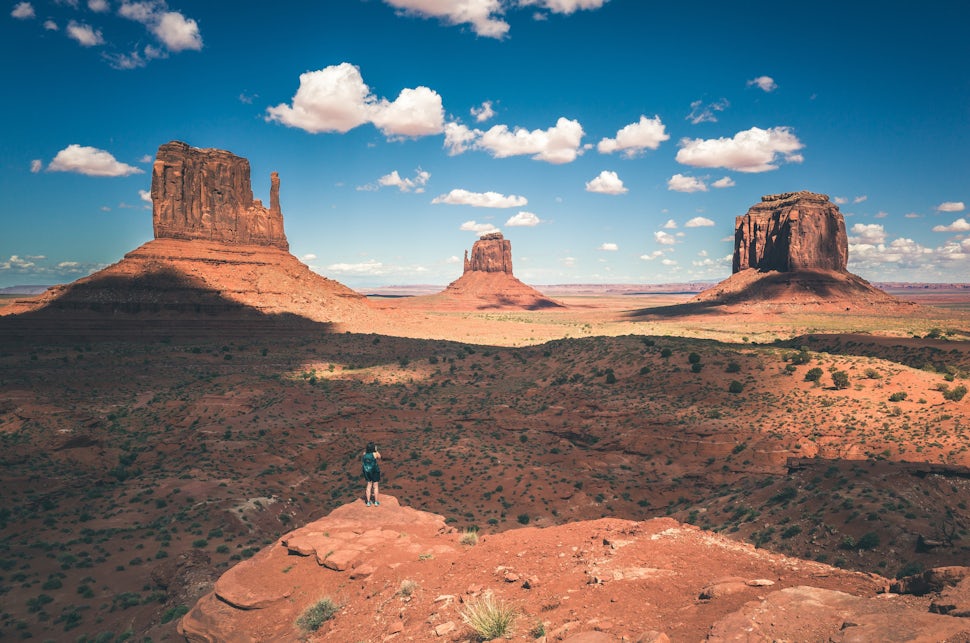Boycotting Outdoor Retailer Is Misguided at Best, and Damaging to the Industry at Worst
The pro's and cons of the Patagonia-led boycott of the Summer 2017 show

There’s been a lot of hullabaloo about Outdoor Retailer over the last week or so. There have been calls for the show to move from Utah and Salt Lake City as a message to the state that their weak efforts on public lands won’t be tolerated by the outdoor industry. OIA made a public statement earlier in the week that they’re actively exploring alternative locations for future shows.
But now, there’s a “boycott”. Led initially by Patagonia, companies like Arcteryx, Peak Design, and Polartec have now committed to skipping the 2017 Summer Outdoor Retailer as a form of “protest” against Utah. Now, there’s no question that Utah has some incredibly poor policies regarding public lands and that the outdoor industry has a responsibility to throw our considerable weight around in opposition of said policies. But let's be clear. Whether Outdoor Retailer should leave Utah, and the the Summer 2017 boycott are 2 separate issues. I believe a boycott of Summer OR isn’t the solution. Here’s why.
Outdoor Retailer is under contract until 2018
Outdoor Retailer is already considering alternate locations for once they’re out of the current contract. That contract doesn’t expire until 2018. So even if many large brands boycott in protest, Outdoor Retailer isn’t going anywhere for the time being. There is a clear distinction between urging OR to not renew their contract in Utah, and boycotting the the Summer 2017 show. I personally agree that the show should probably leave Utah when they're contract is up. But what’s the point of punishing Outdoor Retailer when they can’t even move the show yet?
The boycott hurts brands that need Outdoor Retailer
There are a lot of people in support of the boycott whom I think don’t really understand the purpose of the show. I’ve seen posts about companies “showing their true colors”, which portray non-boycotters somewhat like traitors to Utah’s public lands. The reality is that most of the brands that have come out as boycotting are brands that can either afford to miss the show, or do most of their business online anyways. It’s a great PR play for huge, well-known brands like Patagonia and Arcteryx, and they know they’ll benefit from consumers who see the boycott as an altruistic move. But in reality, it’s more of a selfish PR play. By chipping away at the legitimacy of the show, it hurts smaller brands that need the show to do business. OR is not just a big meetup and party for outdoors folks. It’s where brands meet with suppliers, plan inventory, and land contracts with retailers to stock and sell their gear.
Western Rise founder Will Watters had this to say: “The mass exodus of brands would do irrefutable damage to the show and the industry as a whole. I know many small brands like WESTERN RISE wouldn’t exist without the Outdoor Retailer show and the people it brings together”
Creating division helps no one
This lack of unity amongst powerful brands in the outdoor industry is detrimental to our overall goals. Instead of pitting industry leaders against each other and ostracizing brands that don’t feel a boycott is productive, we should be standing together. Outdoor Retailer is the place where twice a year, the most influential and powerful people and companies in the industry are under one roof. This is the place where organization and action should be happening.
Outdoors advocate and activist Katie Boue said it best. “Before you get all riled up in supporting the ‘boycott’ ask this: what does that DO? Who does that affect? What’s the end game? Without unity, we lose power. And without our relentless, hard-working outdoor nonprofits, we’d lose the battle. Period. Instead of boycotting, we should show up to summer OR, focus the show energy on advocacy, and march from the Salt Palace to Capitol on the last day.”
It's not all negative
Patagonia is absolutely capitalizing on their ability to create news. A move like this certainly brings more eyeballs and coverage to conservation efforts in Utah. They've chosen a path that not everyone in the industry may agree with, but they believe forwards their goals, and Patagonia has a stellar track record regarding conservation. It's a complex issue, to be sure, and I don't pretend to have all the answers. The move may force OIA into a more concrete decision regarding leaving Utah in 2018, and keep the public lands debate in the spotlight.
In the end, I personally believe we’re stronger together than we are apart, and it seems the boycott may have more of a detrimental affect to our industry than a concrete set of goals. Our public lands are important, but it’s imperative that we fight for them in a way that is constructive and unified.
We want to acknowledge and thank the past, present, and future generations of all Native Nations and Indigenous Peoples whose ancestral lands we travel, explore, and play on. Always practice Leave No Trace ethics on your adventures and follow local regulations. Please explore responsibly!
Do you love the outdoors?
Yep, us too. That's why we send you the best local adventures, stories, and expert advice, right to your inbox.








